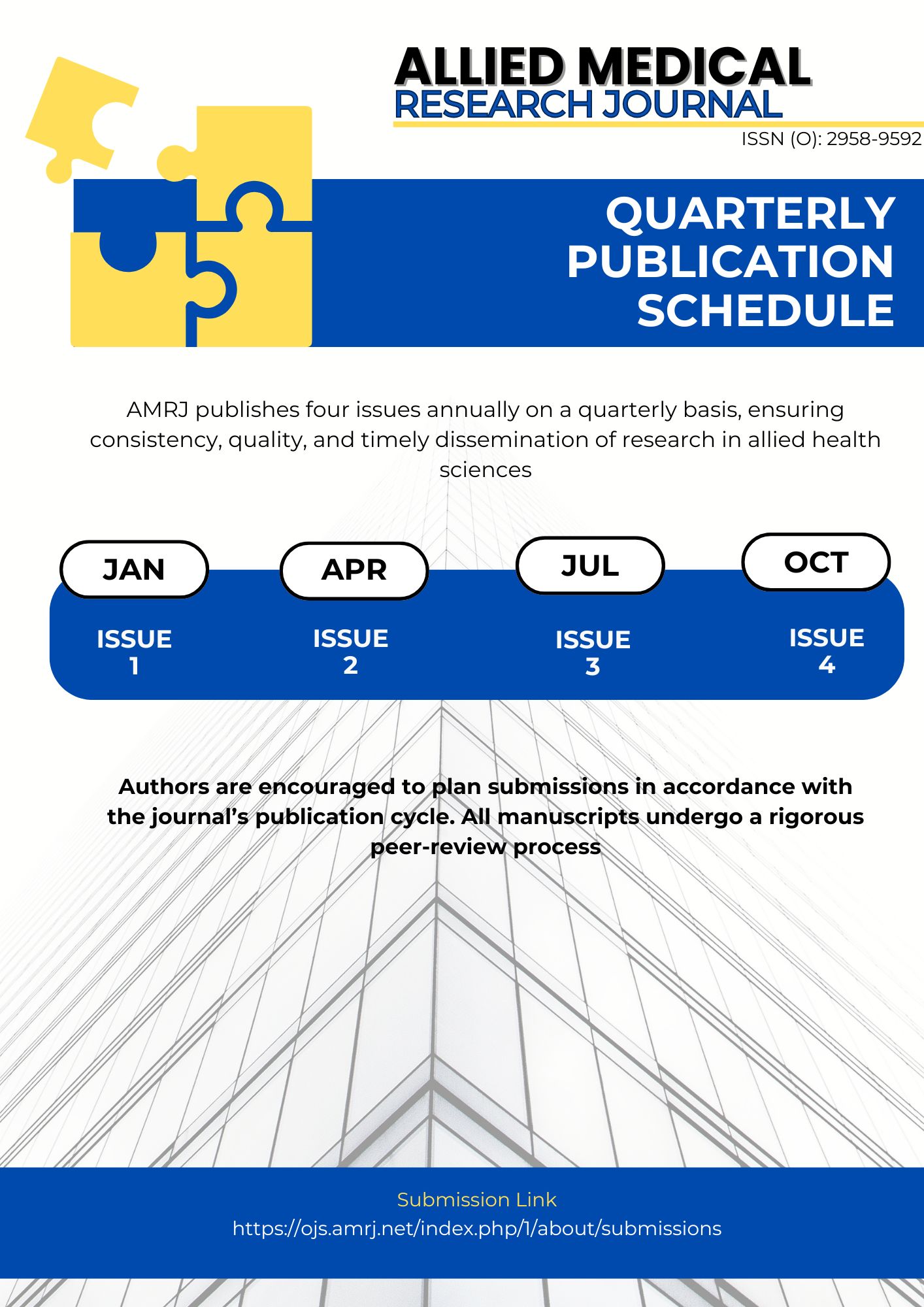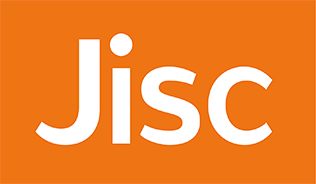Efficacy of Post-Isometric Relaxation vs. Sustained Stretching for Improving Cervical Spine Mobility in Upper Cross Syndrome-A Randomized Controlled Trial
MET vs. Stretching in Upper Cross Syndrome Patients
Keywords:
Disability, Pain Management, Range of Motion, Upper Cross SyndromeAbstract
Background: Upper crossed syndrome (UCS) is a common musculoskeletal disorder characterized by muscle imbalance in the head and shoulder areas, often aggravated by poorposture. The Muscle Energy Technique (MET), a method involving post-isometric relaxation (PIR) and various sustained stretching techniques, often alleviates UCS symptoms.
Methodology: A randomized controlled trial compared the effectiveness of PIR and sustained stretchingin reducing tightness in the upper trapezius and levator scapulae muscles in 30 subjects at Al-Sehat Rehabilitation Centre in Karachi, Pakistan. Assessment parameters included the Numeric Pain Rating Scale (NPRS) for pain intensity and cervical range of motion (ROM) measured using an inclinometer.
Results: PIR and sustained stretching significantly reduced pain and improved cervical ROM. PIR was more effective in reducing pain, while sustained stretching led to more substantial improvements in left rotation and lateral flexion ROM.
Conclusion: PIR and sustained stretch are promising treatment options for managing UCS-related symptoms. PIR was more effective in managing pain, while sustained stretch was more beneficial for improving cervical ROM. These findings should be taken into consideration when developing treatment protocols for UCS.
References
Chang MC, Choo YJ, Hong K, Boudier-Revéret M, Yang S. Treatment of upper crossed syndrome: a narrative systematic review. InHealthcare 2023 Aug 17 (Vol. 11, No. 16, p. 2328). MDPI.
Yaghoubitajani Z, Gheitasi M, Bayattork M, Andersen LL. Corrective exercises administered online vs at the workplace for pain and function in the office workers with upper crossed syndrome: randomized controlled trial. International archives of occupational and environmental health. 2022 Oct;95(8):1703-18.
Pathan H, Pawar A, Rao R, Phansopkar P, Chitale N, Arora S. A structured exercise program for upper cross syndrome. J Med Pharm Allied Sci. 2022;11:259-63.
Pathan H, Phansopkar P, Naqvi WM. Screening for Upper Cross Syndrome in Asymptomatic Individuals. Indian Journal of Forensic Medicine & Toxicology. 2021;15(1):50-4.
Janczarzyk D, Jamka K, Mikołajczyk E, Zając B. Comparing the Effects of a Series of Ischaemic Compression Therapy and Muscle Energy Techniques on Pain Threshold and Muscle Tension in People with Upper Crossed Syndrome. Medical Rehabilitation. 2022 Jun 11;27(1):4-10.
El-Tallawy SN, Nalamasu R, Salem GI, LeQuang JA, Pergolizzi JV, Christo PJ. Management of musculoskeletal pain: an update with emphasis on chronic musculoskeletal pain. Pain and therapy. 2021 Jun;10:181-209.
Chaitow S, Franke H. The History and Context of Muscle Energy Technique. Chaitow's Muscle Energy Techniques E-Book: Chaitow's Muscle Energy Techniques E-Book. 2023 Apr 11:56.
Pathan H, Phansopkar P, Naqvi WM. Screening for Upper Cross Syndrome in Asymptomatic Individuals. Indian Journal of Forensic Medicine & Toxicology. 2021;15(1):50-4.
Prentice WE. Proprioceptive neuromuscular facilitation techniques in rehabilitation. InRehabilitation Techniques for Sports Medicine and Athletic Training 2024 Jun 1 (pp. 355-378). Routledge.
Risalda P, Phansopkar P, Naqvi WM. Effectiveness of active release technique verses conventional physiotherapy in management of upper cross syndrome. Indian Journal of Forensic Medicine & Toxicology. 2021 Jan 1;15(1):246-50.
Patel N, Desai S, Patel P. Effectiveness of muscle energy technique versus positional release technique on upper trapezius trigger points in subjects with neck pain–comparative study. International Journal of Current Research and Review. 2021 Jun;13(11):87-91.
Ghous H, Ghous S, Asim R, Mujahid MU, Arslan M, Khalid A. Prevalence of Cervicogenic Headache and Its Association with Upper Crossed Syndrome in Dentists: Prevalence of Cervicogenic Headache. THE THERAPIST (Journal of Therapies & Rehabilitation Sciences). 2023 Dec 31:35-9.
Danazumi MS, Yakasai AM, Ibrahim SU. Effect of integrated neuromuscular inhibition technique in the management of piriformis syndrome: a case report. Middle East Journal of Rehabilitation and Health Studies. 2020 Apr 30;7(2).
Modarresi S, Lukacs MJ, Ghodrati M, Salim S, MacDermid JC, Walton DM. A systematic review and synthesis of psychometric properties of the numeric pain rating scale and the visual analog scale for use in people with neck pain. The Clinical Journal of Pain. 2022 Feb 1;38(2):132-48.
Caña-Pino A, Espejo-Antúnez L, Adsuar JC, Apolo-Arenas MD. Test–retest reliability of an iPhone® inclinometer application to assess the lumbar joint repositioning error in non-specific chronic low back pain. International Journal of Environmental Research and Public Health. 2021 Mar 3;18(5):2489.
Rosa DP, Borstad JD, Ferreira JK, Gava V, Santos RV, Camargo PR. Comparison of specific and non-specific treatment approaches for individuals with posterior capsule tightness and shoulder impingement symptoms: A randomized controlled trial. Brazilian Journal of Physical Therapy. 2021 Sep 1;25(5):648-58.
Kang T, Kim B. Cervical and scapula-focused resistance exercise program versus trapezius massage in patients with chronic neck pain: A randomized controlled trial. Medicine. 2022 Sep 30;101(39):e30887.
Gillani S, Rehman S, Masood T. Effects of eccentric muscle energy technique versus static stretching exercises in the management of cervical dysfunction in upper cross syndrome: a randomized control trial. Journal of the Pakistan Medical Association. 2020;70(3):1.
Mittal S, Sharma S. Effect of myofascial release and muscle energy technique on patients with chronic neck pain: a scoping review. Physical Activity and Nutrition. 2024 Mar;28(1):45.
Ghulam HS, Alqhtani RS, Alshahrani A, Ahmed H, Khan AR, Khan A. Efficacy of cervical mobilization with post-isometric relaxation in managing mechanical neck pain, ROM, and functional limitations associated with myofascial trigger points. Medicine. 2023 Dec 29;102(52):e36710.
Mudassar, P., Butt, Z., Salik, S., Munawar, R., Hamid, K., Yaseen, I., Saeed, A. and Khalid, A., 2023. Combined Effectiveness of Static Stretching With and Without Post-Isometric Relaxation (PIR) in Managing Pain, Range of Motion and Functional Status Among Upper Cross Syndrome Patients: Combined Effectiveness of Static Stretching. Pakistan Journal of Health Sciences, pp.151-155.
Sadriwala S, Khan S. Comparative study between the effects of Myofascial Release Technique (MFR) and Phonophoresis followed by Cervical Isometrics in pain and range of motion on patients with Trapezitis.

Downloads
Published
Issue
Section
License
Copyright (c) 2024 Dr. Vinod Kumar, Erum Tanveer, Dr. Hamza Ahmed, Dr. Sumeet Kumar

This work is licensed under a Creative Commons Attribution-NonCommercial 4.0 International License.








